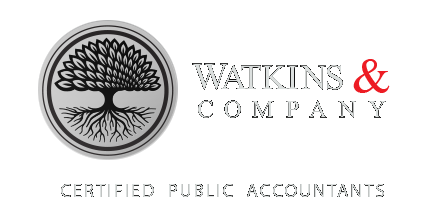Do I need to send 1099’s? Nine Things you need to know as a small business owner
The 1099 Process can seem a bit daunting, but don’t let it overwhelm you. Here are nine basics that you need to know about 1099s
- 1099s need to be issued to anyone that provided a good or service to you that exceeds $600. A good or service is: parts, material, prizes, awards, rents, or other income payments. These need to be paid to any individual, partnership, LLC, Limited Partnership, or estate.
- Examples of this – Joe Smith IT Services comes in and fixes a computer issue
- An independent contractor who works on your car or makes repairs to your office
- There can be penalties if this isn’t done. The penalties can range from $30- $100 per form depending on how delinquent the form is.
- Remember when in doubt, send it out. Sometimes there may be a vendor that you’re just not entirely sure whether they should receive a 1099 or not. Either they aren’t responding with their W-9 or you’re not sure of what entity they are. It’s better to know that you (the taxpayer) have done your job, rather than to receive a penalty that would cost more than issuing the 1099 in the first place.
- There are businesses that don’t require a 1099. There are quite a few exceptions but the most common is rent paid to a property manager, or any seller of merchandise, freight or storage. Also, corporations (S Corps and C corps) don’t require a 1099. ** Fun Fact – Lawyers get a 1099 regardless of whether they are incorporated or not.
- Instituting a process of obtaining W-9s from all vendors before the end of the year can be a huge time saver. This will let you know whether a vendor is a corporation or not in advance of completing 1099s. It also will include Tax ID numbers and mailing addresses for all of your vendors, that way when the new year hits you’ll have all the data you need to create your 1099s.
- Even if you don’t expect to pay a vendor enough to warrant a 1099, still get a W-9. You may need them for something else later in the year that causes them to go over the threshold or in a future year you could choose to use them again. This way you’ll be ahead of the curve!
- There is a process to producing 1099s. You must order or download the proper forms from the IRS, there is also a special paper that the 1099s need to be printed on. Then, after printing you must turn a copy into the IRS with the form 1096.
- This is all due to your vendors by January 31st. The 1096 is due to the IRS by February 28th. Depending on your state’s laws, you may also have to file 1099s with your state. The state of Mississippi asks that you file a state copy of the 1099 by April 1st.
- Did you pay these vendors through a Credit Card or PayPal? If so, the merchant will issue them a 1099 and you don’t have to. But be careful, if you’re payments to them are split between your bank account and the credit card company you are responsible for knowing if the combined total of payments exceeds the threshold and then preparing a 1099.
Did all of this go straight over your head? Or, did you do this for your business last year and you swore you’d never do it again? Don’t worry, we can help you with this! This is one of the many services that we offer our clients here at Watkins and Co, CPA’s.




